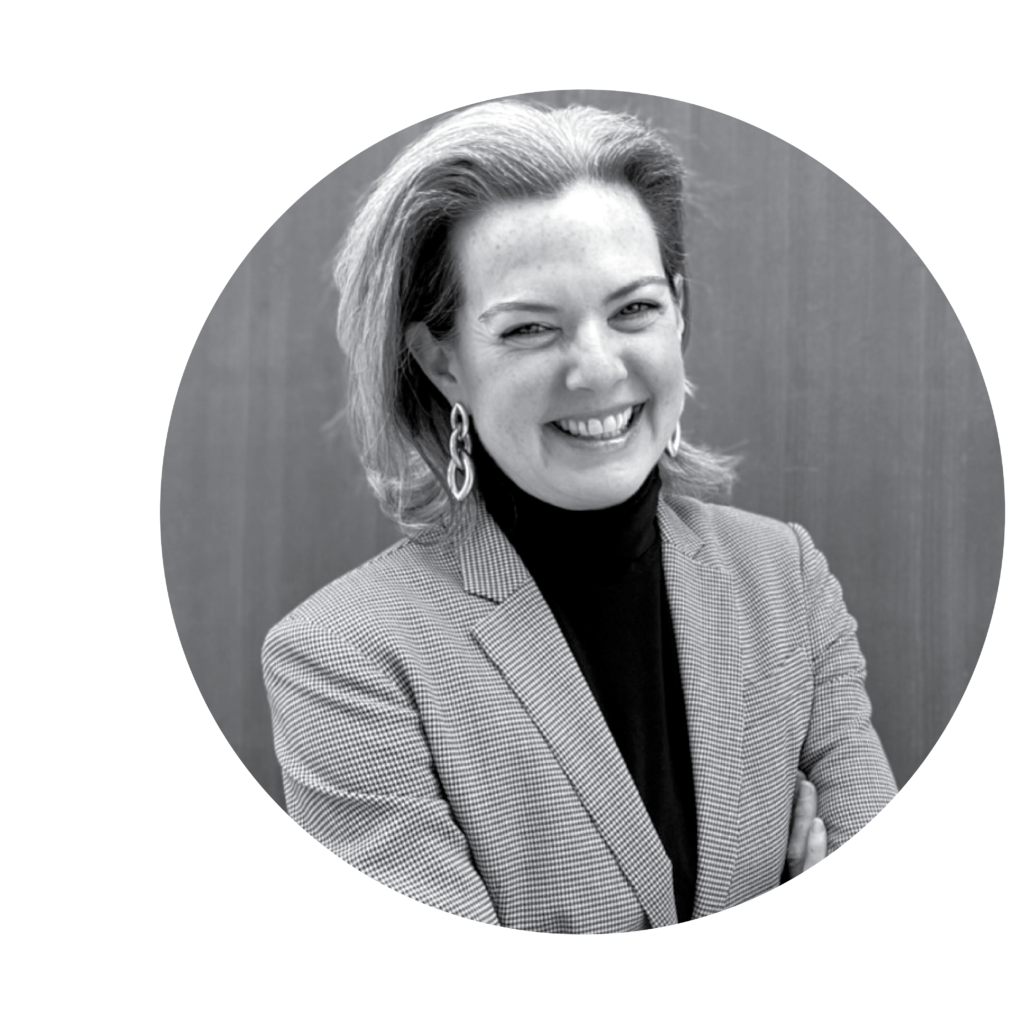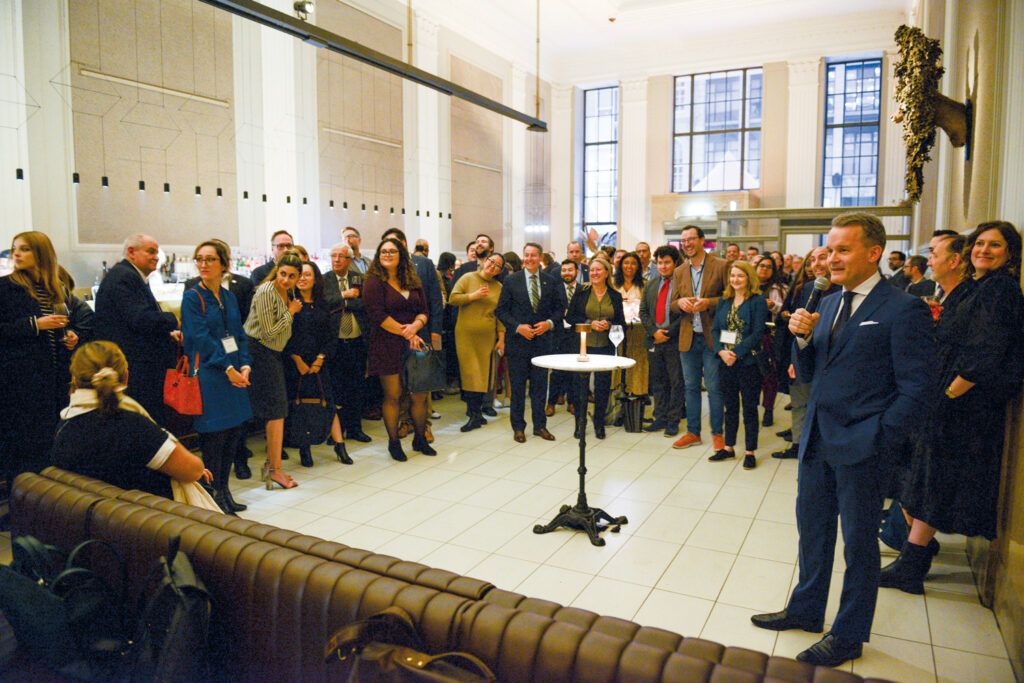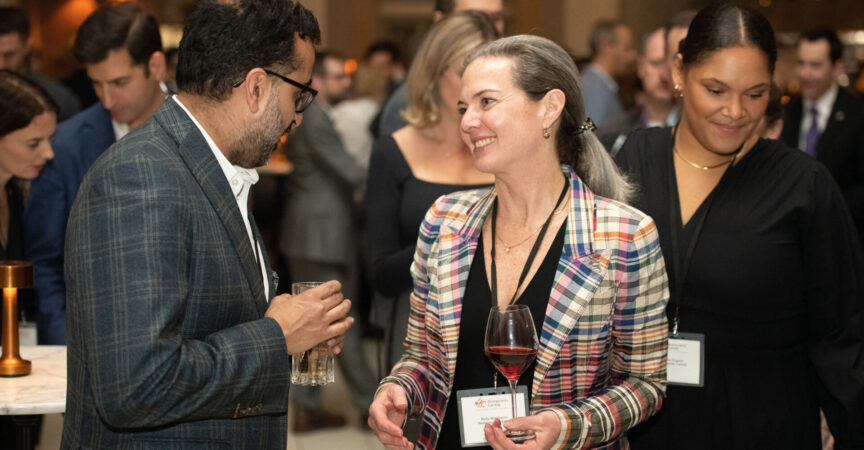DAY ON THE HILL: ADVOCATING FOR CHANGE
RESTAURANTS CANADA BRINGS ITS MEMBERS’ CONCERNS TO PARLIAMENT HILL

Menu magazine in conversation with Kelly Higginson, Restaurants Canada’s Chief Operating Officer
Restaurants Canada’s government relations team traveled to Ottawa on October 13, 2022 for their Day on the Hill to advocate for changes critical to members and the industry at large. Throughout the day, Restaurants Canada met with key policy makers and officials to discuss challenges facing the industry, bringing along a delegation of operators to share their first-person challenges and experiences.
Coinciding with Day on the Hill was the launch of the national “Restaurants Have A Lot on Their Plate” campaign. Aimed at government policy makers and stakeholders, the campaign is driving awareness of key policy recommendations needed to help revive the foodservice sector. The campaign highlights the three largest challenges facing our industry as we recover from COVID-19: mass labour shortages, debt, inflation and supply shortages. Menu magazine met with Kelly Higginson, Restaurants Canada’s Chief Operating Officer to discuss the industry’s advocacy priorities and get her read on the success of the event and the road ahead.
How was this year’s Day on the Hill different from other years?
KH: Over the last three years the industry has gone through the biggest crisis in its history. If we look back at our history, Restaurants Canada was created just after the war. There were labour issues, supply chain issues, pricing issues, a lot of similarities. But a significant difference was that restaurants, for the most part, stayed open and continued to be gathering places for communities. An industry that depends on labour, having employees come to their place of work – being shut down. That was huge.
We needed to get back to Ottawa. We hadn’t been there for four years. We hadn’t connected with a lot of the new MPs and needed to talk about how our $90-billion industry, that is the fourth largest employer in the country was crippled over the last three years.
It was also important to rebuild some relationships with the government, to ensure we continue to work collaboratively and have an open line of communication as a business association, representing our industry’s needs. We brought operators to have conversations with these government policymakers and MPs – to tell real stories, for them to hear what’s actually happening in the restaurants. There are so many things the industry brings to the economy, to their communities, to the people that work within their buildings. There’s a dependency on this industry and we want to make sure that that it was, it was clear. That our needs were clear.
Can you describe the preparations and the collective headspace of the RC delegation leading up to Day on the Hill? What were you sort of hoping to achieve?
KH: Emotionally there was a real desire to make sure we open the doors of communication again and reset the relationship with government. Obviously, the last three years has been a strain on everybody, and we recognize the government was also under an incredible amount of pressure. I think for our goal as an association and for the members we brought there, was for all of us to have an open dialogue. It wasn’t about bringing your pitchfork and blame. It really was a collaborative effort to make sure we could join forces with the government. Work together to find solutions that would benefit our industry and therefore benefit Canada.
When you got there who were you able to meet with directly?
KH: We had the largest Day on the Hill that has happened this year and one of the largest they’ve had in many, many years. We had almost 60 meetings with several MPs, we also met with some policy advisors to the Prime Minister and some members of the research team which was valuable for us. Because one of the unique facets of our association is the amount of research. We have a chief economist and Chris Elliot’s research is so valuable to the government because they just don’t have the ability to pull the data that we do for our specific industry. To be able to present some of the issues, for example, our industry is trying to recover but the restaurants are, on average, operating at 80 per cent capacity because of labour issues. For the MPs and policymakers to understand what that means and how that affects recovery. Then we have operators who are trying to pay back loans. For example, some of the loans some restaurants have can’t be paid back because they can don’t have full capacity in the restaurants, and they are unable to open with full operating hours because of labour shortages. So it’s just piling on piling on piling on. It was important for us to talk about that and take policy advisors through what’s really going on.
There’s an understanding this is going to be a longer recovery than any of us had anticipated and that we’re all being presented with some unique challenges. They were receptive to all our needs. A short time later there were some big policy announcements and commitments made to our immigration policies that streamline things to make it easier for our industry to get labour.
What was the response like? How did the team feel at the end of The Day on the Hill?
KH: It was a really positive two days of meetings. We request meetings with every single MP, but for us to get that many responses were phenomenal. It showed us they wanted to speak to us and understand what’s happening out there. There’s an understanding this is going to be a longer recovery than any of us had anticipated and that we’re all being presented with some unique challenges. They were receptive to all our needs. A short time later there were some big policy announcements and commitments made to our immigration policies that streamline things to make it easier for our industry to get labour. We’re really pleased with the reception on both sides – we met with a lot of the opposition as well. With the shadow cabinet, there was a real understanding of our industry’s needs. With, the Liberals we certainly felt that there’s a lot of frustration about what happened during COVID-19, but they really did provide us with some lifelines like rent subsidies and wage subsidies, which meant more restaurants are here today. There was a sense like we’ve all been through this together.
What were the reactions from the different political parties?
KM: One thing we were able to do was to ensure all parties are supportive of this industry being successful. If they made a commitment to immigration, as they did, they made commitments beneficial to us. There isn’t going to be blowback from another party. All parties were clearly understanding Canada has a labour crisis, affecting retail food service – which is a valuable economic driver. The labour shortage isn’t a partisan issue – it’s an issue on either side of the aisle you sit on. Supply chain issues are going to be a challenge for the country and for Canadians as well. There was nothing we presented that one party wouldn’t support simply because another party was supporting it.

I think one of the great things I’ve seen throughout the pandemic is a rallying of the industry where we understand we are all kind of dependent on each other
Apart from the Restaurants Canada team, who did you bring with you to Day on the Hill?
KM: We had nearly 50 operators there, which was fantastic. This industry is diverse. We have large chains, chains that are part of franchises – which means a lot of independent owners. We have small mom and pop operations, which contributes to dynamic communities. I think one of the great things I’ve seen throughout the pandemic is a rallying of the industry where we understand we are all kind of dependent on each other, and we need to unite to bring our issues forward. We also had representation from across the county – it was a really great mix of independents and chains.
There were delegates from different places in Canada. Were they in any way involved in the development of your priorities?
KH: Definitely. Yeah, Chris Elliot, our chief economist, conducts member surveys all the time to understand the key issues. Our lobby efforts in late July coincided with our biggest surveys of the year and one of our biggest research pieces which is the Food Service Facts. This had really challenging data in it about the state of our industry. What we learned was we were really hoping for a bigger recovery period and some frightening data about where we’re headed in 2023. We had a lot of information that came directly from our membership. We also have a Board of Directors comprised of operators, so we get a lot of feedback through them as well.
What was the reception like?
KH: The reception we received is indicative of our connection to the industry. After Day on the Hill, we held an event at the Riviera Ottawa. We served 100 per cent Canadian products and it was it was beautifully done. The reception was packed with high-level MPs policymakers. The who’s who of Ottawa came out and just wanted to talk to our members and connect with them. It’s indicative of the importance of the industry and what we bring to Canadian economy. But also more importantly, what this industry brings to the communities we serve.
Did the members feel heard?
KH: I do think they felt heard. We can talk about these issues but they’re feeling it in real time. For example, when some of our operators were on the hill, they’re also trying to deal with scheduling issues back at their restaurant. Somebody wants to book a large 100-person party at their place but they don’t know how to staff it. The challenges were made real.
Day on the Hill, is not a one and done. What’s next?
KM: It’s a constant effort. Our team works daily on issues. The large immigration policy that was announced on November 1, with an increasing number of permanent residents with a goal of reaching 500,000 in 2025 was due in part to our lobbying efforts. This now gets spread out to the provinces to manage. So now our lobby efforts are ramping up provincially, to make sure our industry is allocated and considered when looking at immigration. There’s a lot of sustainability discussions happening across the country. So we’re trying to find some alignment and some consistency. We’re trying to work on membership, knowledge, and education, as well of all of the different pieces of the sustainability programs happening because it is municipal. It’s going to be challenging for some of our members.
What I’m hearing is the work is never done.
KH: Exactly. There’s always something our government relations team is working on. We have other efforts going on as well – whether it’s in alcohol, looking at third party party delivery. There’s always a good basket of issues. Our primary focus is going to be supply chain, tourism, immigration and working in a coalition with other associations – like other retail councils and other business associations. We want to make our lobbying efforts heard.
Any final thoughts?
KH: The most important thing for us to remember is that all these things – supply chain, labour, debt, inflation – are fine for us to talk about. But our members are really dealing with all of these significant challenges in real time. Our team needs to continue doing our job and deliver what we committed to delivering and make sure that we continue to work with the government to ensure that it works for our industry.









